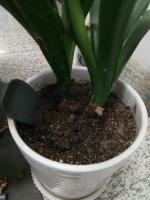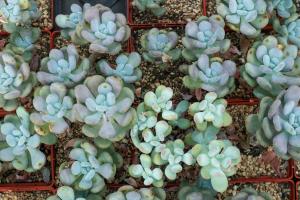Where to Plant a Palm Tree
If you live in a warm climate, planting a palm tree in your yard can add a tropical and relaxing feel to your landscape. Palm trees are well-known for symbolizing hot weather, beach vacations, and paradise. But before you decide to plant a palm tree, it's essential to consider the factors that will impact its growth and survival.
Climate
The climate of your area is one of the significant factors to consider when it comes to planting a palm tree. The natural habitat of palm trees is hot and sunny environments, and most species thrive in warm temperatures. Some palms, such as the Windmill Palm, can grow even in cold temperatures but prefer a mild climate.
If you live in a region with freezing temperatures, it's essential to choose cold-hardy palm tree species like the Needle Palm and the Dwarf Palmetto that can withstand the harsh winter weather.
Soil
The soil is another critical aspect to consider when planting a palm tree. Palms prefer well-draining soil that's rich in nutrients. Sandy or loamy soils with a slightly acidic pH level are ideal. However, if the soil in your area is heavy and clay-like, consider adding organic matter such as compost to improve drainage and aeration.
Sunlight
Palms require lots of sunlight to thrive, and planting them in the right spot is key to their growth. Depending on the species, some palms can tolerate partial shade or filtered light, while others need full sun exposure to flourish. Make sure you select a planting area with at least six hours of sunlight daily. However, be cautious not to expose your palm tree to intense sunlight during the hottest parts of the day, as it may burn the leaves.
Water
Just like any other plant, palms require water to grow. Water requirements may vary between species, but most palms need regular watering, especially during the growing season. The frequency of watering depends on the climate and soil type. It's crucial to avoid overwatering, as it can lead to root rot and other problems.
Space
Palms can grow to be quite large, and it's crucial to consider their size when planting them in your yard. Make sure you choose a species that will fit well with your landscape design, taking into account the height and spread of the tree.
When deciding where to plant a palm tree, it's crucial to consider the plant's needs and the conditions of your growing area. By selecting the right species and providing it with the proper care, your palm tree can grow into a beautiful addition to your landscape that will last for years to come.

 how many times do yo...
how many times do yo... how many planted tre...
how many planted tre... how many pine trees ...
how many pine trees ... how many pecan trees...
how many pecan trees... how many plants comp...
how many plants comp... how many plants can ...
how many plants can ... how many plants and ...
how many plants and ... how many pepper plan...
how many pepper plan...
































